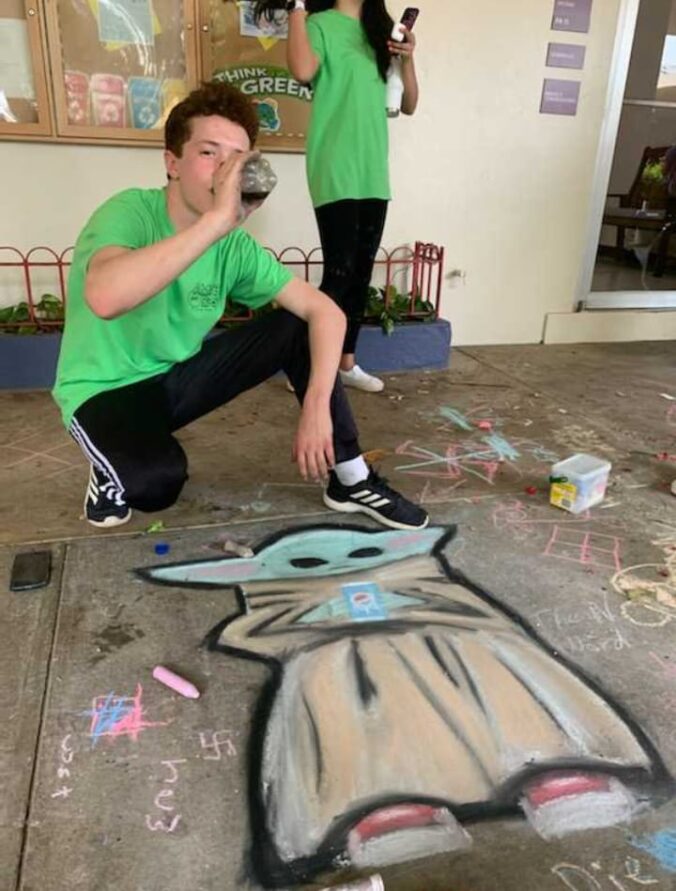It is certainly frustrating trying to lift the veil on the root causes of problems that exist in society. First, based on what I see, what is the best way to intervene and help fix the problem or foment conditions whereby the problem may be addressed. Second, is there actually a problem to begin with? Is it all an illusion? Are there forces that work to attempt to profit from fear and uncertainty? All of the above?
I’ll admit, it’s tough to pierce the veil. In my own youth, the root causes of the inequalities in society were masked to me, my understanding thwarted by a system that served me and about which I had no complaints. Now, in my adulthood, and as a resident of Puerto Rico, I have benefited from having lived outside of my own white American experience. I have learned a foreign language, and suffered over “the right way” of doing things only to find that there is no “right way.” There is only a right way inside of a specific context, and that context is fluid. Sure, there are general principles, like honesty, integrity, fairness, but the forms those things take is fluid and sometimes not familiar outside of a particular context.
Different isn’t wrong, and perhaps it even ends up being the wellspring of innovation.
But our resistance to difference, to trying to “fix” the other, a lack of cultural and societal perspective on things like standardized testing bias, is holding America back. We are still falling into the same traps over and over. Americans say, “we test them, and on average they come out dumber.” Not only that, but Americans have a neat and easy explanation too. There must be a genetic component, as was said by James Watson (discoverer of DNA) recently. I’m probably repeating myself here, but over and over again, I note that we look for innate properties to describe societal outcomes. It’s easy. It’s natural, and it absolves society completely of guilt.
We didn’t make you poor. It’s your choices. It’s your inferior culture and values. Maybe it’s genetic. You’ve had 150 years to get over it. How come Nigerians immigrate here and do better? Here you go, we have a special program for you that will stigmatize and marginalize you, thereby fulfilling the promise that we will get what we expect – more failure. Or maybe, just maybe, there isn’t actually more failure, we just focus on it more, confirming our biases.
This kind of thinking is fomented by a society that does not have the tools to understand its social pressures. Most white Americans do not speak a second language. Most white Americans have not lived in another culture, have not put themselves in a community where they are not the majority. Once African Americans move into an area, white people flee using the racial dog-whistle “better schools” and continue to live in their bubble.
So, what can we do?
Well, one thing we can do is try to ignore our own uniformed “observations.” There are a couple of things working against understanding social pressures, one is confirmation bias. We tend to not conduct impartial investigations in our own living spaces. We tend to not give the benefit of the doubt as we clutch our purses. We tend to make conclusions on very small sample sizes, and we tend to erroneously apply those conclusions as general rules.
This exception-based thinking can be found in individuals who talk about the one guy they know who survived a car crash because he wasn’t wearing his seatbelt. “If he had been wearing his seatbelt,” they say, “he wouldn’t have been thrown free and would have been crushed. The guy walked away like nothing happened to him.” I shake my head, because they will hang onto that personal exceptional story and resist the countless incidences of those who also walked away because they were wearing a seatbelt. Those cases are unexceptional and therefor not noteworthy.
We have a tendency to cling to these exceptions, leading us to incorrect perceptions about reality.
Another pressure that works against understanding is the news media. It’s related, but I want to focus on two phrases in particular: “Man Bites Dog” and “If it bleeds, it leads.” Each principle is indicative of a reality that exists outside of the normative. It’s reported because it’s rare and horrific. The index of effect is greatly exaggerated by these reports. If the impact is the product of the rareness and the magnitude then it can, in one’s mind, equal the aggregate impact of more common occurrences.
We then make political decisions on these very small sample sizes and we extrapolate them into trends and conclusions that are not supported by the data. Things “seem” a certain way because the news media reported a passenger jet with 250 people aboard crashed into a mountainside. We don’t necessarily hear about each and every one of the 30,000 or so people who are killed in traffic accidents every year. In general air travel is very much safer than car travel, but sometimes it certainly doesn’t feel that way, does it?
I would simply ask that we challenge and humble ourselves in the face of what we regard as the truth about things. What we may believe about the “others” is most probably wrong. Look to bias in the news media. Look to how we confirm our own biases by consuming information that validates our own viewpoints. Accept the conclusions of anthropologists and sociologists when they say that sub-optimal outcomes are social and systemic and not based on inherent defects in the marginalized population. Just as we accept the rocket scientist and his orbital calculations, we should regard social scientists with the same deference. “Hmm, I may not feel acutely imperiled by not wearing my seatbelt in a moving car, but the engineer said I should. Maybe I should listen.”
